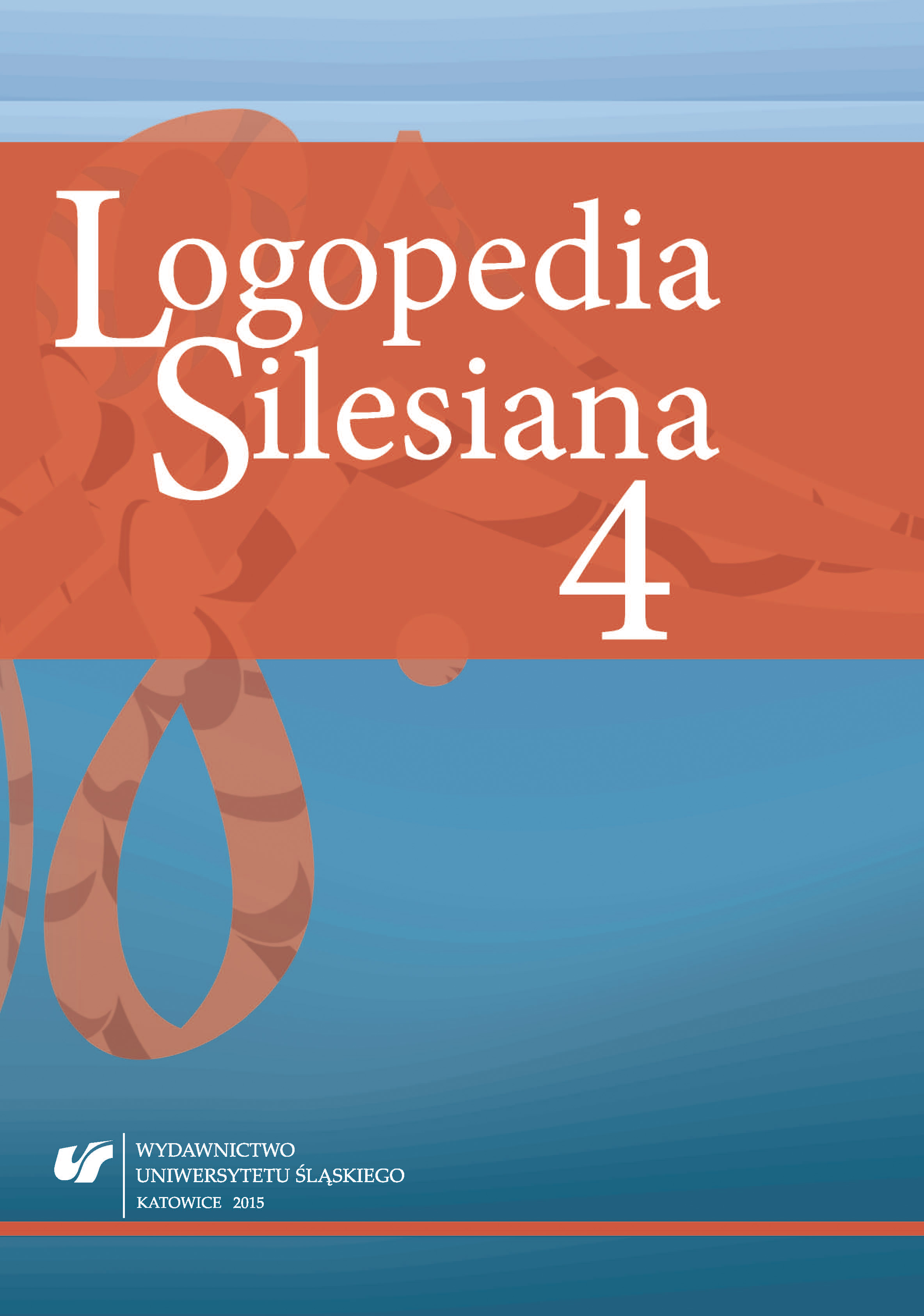Problemy metodologiczne badań nad kompetencją językową dzieci z niepełnosprawnością intelektualną
Methodological Problems in the Studies on Linguistic Competence of Children with Intellectual Disabilities
Author(s): Agnieszka WątorekSubject(s): Language and Literature Studies, Theoretical Linguistics, Applied Linguistics, Psycholinguistics
Published by: Wydawnictwo Uniwersytetu Śląskiego
Keywords: intellectual disability; linguistic competence; methodology
Summary/Abstract: A. Wątorek’s paper addresses methodological issues revolving around the studies on linguistic competence of children with a diagnosed mental disability. The author presents a range of specific solutions that are worth familiarising with, since she has proved their usefulness in the research work during several years of her original studies with 8- and 10-year-old students afflicted with mild intellectual disability attending special and integration schools. A. Wątorek recreates a possible course of the research process, as seen from the perspective of an empirical researcher who is fully aware of the difficulties that pile up in front of him or her, associated with selecting the subjects for the experimental group, choosing control groups, selecting research tools and methods, planning diagnostic sessions, and analysing the obtained empirical data. The author underlines the fact that the current knowledge on the speech acquisition of children with intellectual disabilities is insufficient, and the reason for that lies in the lack of verified methodological models. She provides the example of her own original research concerning passive and active vocabulary of children coming from different socio-familial backgrounds, simultaneously proving that constant underestimation of the environmental factor in comparative studies on linguistic competence of children with mild intellectual disability leads to the exaggeration of differences between subjects with diagnosed mental disability and subjects that are within the clinical norm, whereas in certain circumstances the diagnostic criterion gives way to various environmental criteria. As the author emphasises, despite the difficulties that are connected with studies on the speech of children with intellectual disabilities, the research should be planned and executed with the proper care for methodological transparency, as the essence of scientific activity is to ascertain the truth – no matter how hard it may be – with the use of increasingly improving methods, tools, techniques and procedures of research conduct.
Journal: Logopedia Silesiana
- Issue Year: 2015
- Issue No: 4
- Page Range: 200-217
- Page Count: 18
- Language: Polish

